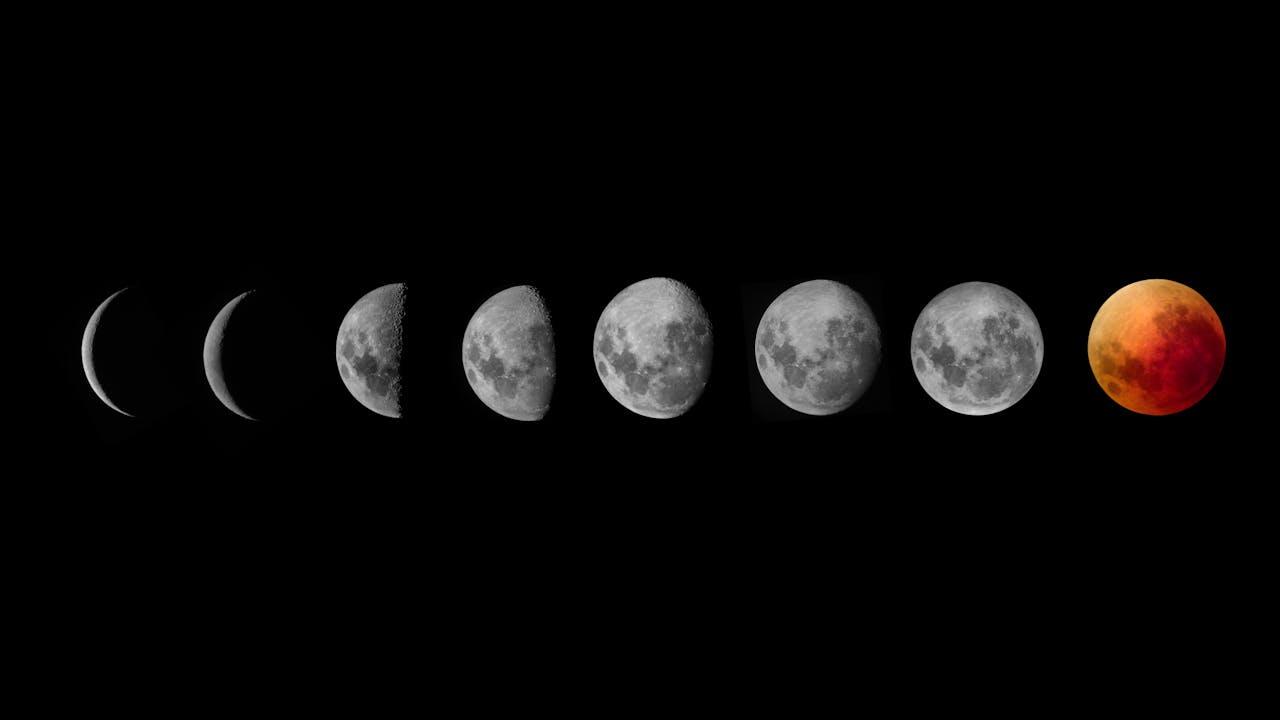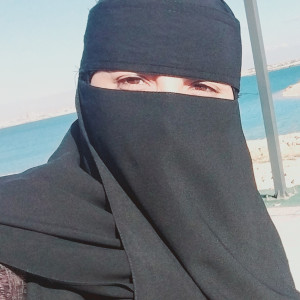The thing that springs to a lot of people's minds when we talk about Ramadan is fasting. Fasting during Ramadan (Arabic: Sawm) is one of the Five Pillars of Islam, which are the foundations of the Islamic faith.1
Ramadan, also known as the Holy Month, takes place during the ninth month of the Islamic calendar (Hijri) based on the start of the Islamic New Year. It involves more than just abstaining from food and drink from dawn to sunset — but from smoking, sexual activities, and impure thoughts.
In this article, we will look at the key dates of Ramadan and the significance of this observance.

📅 Understanding Ramadan's Timing
Throughout the month-long period of Ramadan, Muslims devote themselves to their faith, where they are reminded of the suffering that many poor people and their ancestors have endured, while cultivating self-discipline. However, the timing of Ramadan is never fixed.
This means Muslims might observe Ramadan in June one year and in December a few years later. That's because Muslim festivals are determined by the Islamic calendar, instead of the Gregorian calendar.
*
| Year | Start of Ramadan (UK) | End of Ramadan / Eid begins (UK) |
|---|---|---|
| 2021 | Tue 13 Apr 2021 | Thu 13 May 2021 |
| 2022 | Sun 3 Apr 2022 | Mon 2 May 2022 |
| 2023 | Thu 23 Mar 2023 | Fri 21 Apr 2023 (or Sat 22 Apr) |
| 2024 | Mon 11 Mar 2024 | Wed 10 Apr 2024 |
| 2025 | Fri 28 Feb / Sat 1 Mar 2025 | Sun 30 Mar / Mon 31 Mar 2025 |
| 2026* | Wed 18 Feb 2026 | Fri 20 Mar 2026 |
| 2027* | Fri 20 Mar 2026 | Tue 9 Mar 2027 |
*Dates for 2026, 2027 are tentative and subject to moon-sighting confirmation
🌙 Lunar Calendar and Moon Sighting
In the Islamic calendar, there are 29 to 30 days per month, and approximately 354 days a year.
On the other hand, the Gregorian calendar has 28 to 31 days per month, and approximately 365 days a year.
As the Islamic calendar follows the lunar cycle (unlike the solar cycle in the Gregorian calendar), the start time of Ramadan depends on the official sighting of the moon. The official dates of Ramadan tend to shift forward approximately 11 days from year to year.

Important note: The beginning of Ramadan is one day after the new moon, when the crescent is seen. If the crescent is not visible, Shaʿbān (the month before Ramadan) completes 30 days, and Ramadan automatically starts the day after.
While this can be forecast through astronomical calculations, many Muslims are still encouraged to observe the moon physically to mark the beginning of Ramadan, as it is a practice that the Prophet Muhammad advocated 2.
The Prophet (ﷺ) or Abul-Qasim said, "Start fasting on seeing the crescent (of Ramadan), and give up fasting on seeing the crescent (of Shawwal), and if the sky is overcast (and you cannot see it), complete thirty days of Sha'ban.
Sahih Al Bukhari Book 30 Chapter 1 Hadith 1
Moonsighting to observe a clear crescent moon is subject to several factors, such as weather, geographical locations, and time zones. You’ll notice that different countries may announce the start of Ramadan on different dates for one of these reasons, which we will explore further in this article.
🕋 Key Dates and Observances in Ramadan 2026
Now, let's have an overview of what and when to expect the upcoming Ramadan, and the important events that will happen during and after the month.
💫First Day of Fasting: Tuesday, February 17
💫Last Day of Fasting: Saturday, March 21 (evening)
💫Laylat al-Qadr (Night of Decree): Monday, March 16
💫First day of Eid al-Fitr: Saturday, March 21
*The exact dates are subject to moon sighting and official announcements
🕌 Laylat al-Qadr (Night of Decree)
An annual Muslim festival that is considered one of the holiest nights in Islamic belief, Laylat al-Qadir is observed during the last 10 days of Ramadan, especially the odd nights (typically celebrated on the 27th of Ramadan month).
This day is significant among Muslims because it marks the night when the Angel Jibreel descended to Earth to reveal the Qur'an to the Prophet Muhammad. Muslims are encouraged to do good during this night, as they can reap great rewards and have their sins forgiven. The common practices during this night include:
- Performing night prayers
- Reciting and reflecting on the Quran
- Praying the dua (prayer of supplication)
- Staying in a mosque (Iʿtikāf) to focus on worship and devotion
🕌 Eid al-Fitr (Festival of Breaking the Fast)
Eid ul Fitr or Eid al-Fitr, is an important date for Muslims, as it marks the end of Ramadan and the fasting period. This festival is a time of feasting and gathering among families and close friends.
Apart from communal prayers at mosques, Muslims will exchange greetings as they visit homes and offer their guests food and gifts.

In the United Kingdom, Eid al‑Fitr is usually celebrated through communal prayers that are held in public parks or open areas in various cities, followed by charity activities and festive meals at family gatherings.

🕰️ Regional Variations in Ramadan 2026 Dates
Let’s explore the two main factors that cause people in different regions to see the crescent moon on different days, which can ultimately influence a country’s start date for Ramadan.
🌅 Factors Influencing Start Dates
We'll delve deeper into these two factors and discuss their respective impacts.
Geographical factors
Cloud conditions or even heavy rain may hide the crescent moon, leading to a delay in the start of Ramadan, especially relevant for countries that adopt local and traditional moonsighting practices.
Latitude affects how high or low the moon appears above the horizon
Longitude affects the local times of different countries, which results in different time zones.
The crescent moon will not be visible at the same time for different countries, so some countries may start Ramadan a day later
Moonsighting practices
Some countries would only recognise moon sightings from their own borders, while some countries would accept moon sightings from other neighbouring Muslim countries.
The traditional practice of naked-eye observation vs the pre-calculated lunar calendar. The former is very much dependent on geographical factors.
Central religious body vs multiple local committees to make official announcement for Ramadan starting dates
💫 Examples of Regional Differences
Now, let's see how different countries have different starting Ramadan dates based on the above reasons.
Saudi Arabia, 2023: One notable example occurred when the Kingdom’s Supreme Court of Saudi Arabia announced that March 23 would be the start of the holy month of Ramadan in the country that year, as the crescent moon was not clearly visible on the previous evening, despite an estimated date of Ramadan on March 22. 3
Pakistan, 2025: Similarly, the moon sighting committee of Pakistan announced that since there was no reported sighting of the Ramadan moon on February 28 due to cloudy weather and no testimonies from different locations on the crescent moon, Ramadan would be observed on March 2 (Sunday) instead of March 1 (Monday). 4
✨ Preparing for Ramadan 2026
Now that you have reviewed the predicted dates for Ramadan and the importance of this observance, let's look at how Muslims prepare for this period. Here's what a day of fasting would look like:
Before dawn
Muslims would wake up to have Suhoor (pre-dawn meal)
Before dawn
After pre pre-dawn meal, they would perform the morning prayer
Dawn
Beginning of fasting hours
Sunset
Time to break fast with dates and water
Sunset
Perform Maghrib prayer after breaking fast
Evening
Perform night prayers (Isha and Taraweeh)
🤲 Spiritual Preparation
Ramadan is an amazing time of spiritual reflection, apart from the sacred months in Islam. It is when Muslims prepare their hearts through prayer, worship, and reading the al-Quran to deepen their faith in God.

Some common spiritual activities include:
- Giving more to charity
- Memorising Quran scriptures
- Spend more time in prayer
- Practice gratitude (especially when you have an abundance of food)
- Join communal activities at mosques
The average fasting hours for Ramadan 2026 will range from 11 hours to 13 hours throughout the month. That's because the sunrise and sunset time shifts daily according to the Earth's orbit.
Having said that, be sure to refer to the 2026 Ramadan timetable to know the fasting schedule throughout the period.
🍽️ Practical Considerations
During this fasting period, it is important to take practical steps to have a rewarding experience without neglecting your health. Fasting hours will continuously increase over time, and you'll need to make several adaptations to your daily schedules.

For meals, it is recommended to plan them earlier while integrating the necessary nutrients for you to sustain yourself before fasting. Include food with higher fibre like oats and whole grains, and proteins like eggs and nuts for your Sahur meal. Also, drink plenty of water to stay hydrated.
Even when you break fast, it's best not to overeat but start with light foods and water so as not to overwhelm your digestive system.
Not all Muslims fast during Ramadan. It is all about whether you are healthy enough to do so. So children, pregnant women, people who are travelling, and those who are unwell do not usually fast. Also, the elderly may decide not to fast as it can risk their health.
Another thing to consider is your regular activity routine in terms of work, study, or exercise. It's best to schedule important tasks (ike meetings or lectures) in the morning when your energy is still relatively high. Instead of intense workouts, you can focus more on walking and lighter exercises during fasting hours to maintain your energy levels.
We hope this article has helped you to understand the Ramadan period and its importance among the Muslim community. If you are interested in exploring more about Islamic holidays and celebrations and the Arabic language, you can always hire an Arabic tutor to deepen your knowledge in these subjects.
At Superprof, you can find the perfect tutor who caters to your learning preferences according to your preferred teaching experience, subject specialisation, and hourly rates. Head to the Superprof UK homepage to start browsing the tutor profiles and embark on an engaging learning journey!
References
- The Five Pillars of Islam. (n.d.). Muslim Aid. https://www.muslimaid.org/media-centre/blog/the-five-pillars-of-islam/
- Sahih Al Bukhari 1909 Hadith Arabic & English Translation | Fasting | 11. (n.d.). https://www.prophetmuhammad.com/bukhari/1909
- Hassan, R. (2023, March 21). Thursday to be first day of Ramadan in Saudi Arabia: Supreme Court. Arab News. https://www.arabnews.com/node/2272956/saudi-arabia
- Ibrahim, M. (2025, March 1). Pakistan to begin Ramadan on Sunday, moon-sighting committee announces. Arab News. https://www.arabnews.com/node/2591963/pakistan
Summarise with AI:















